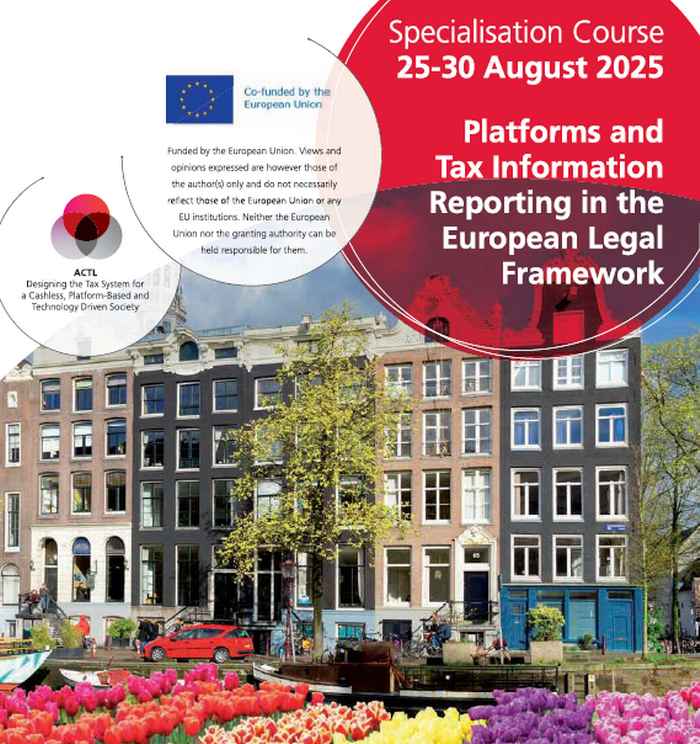Study Programme
The course curriculum includes learning modules on reporting and exchanging information by online platforms under the OECD Model Rules and the Directive on Administrative Cooperation (DAC7), as well as by crypto-assets service providers based on the OECD Crypto-Assets Reporting Framework (CARF) and the DAC8. The specialisation course also addresses information reporting in Value Added Tax (VAT) and discusses the impact of the new rules on taxpayers’ rights and businesses’ tax compliance.
Programme structure
The programme curriculum is divided into 5 learning modules:
-
1. International frameworks for platforms’ tax information reporting
This module provides students with a background on various policy frameworks for platforms’ tax information reporting developed at the international level. Platforms’ business models and legislative initiatives in areas of the law other than taxation are also discussed.
-
2. Platforms’ tax information reporting under DAC7
This module provides an in-depth analysis of the new tax reporting obligations for platforms under DAC7 and the OECD equivalent rules. By discussing practical cases, the module provides students with high-demand skills to apply these rules to different factual scenarios and business models.
-
3. Crypto-assets providers’ tax information reporting under DAC8
This module focuses on the latest tax developments related to the rise of Web3 and the adoption of crypto-assets. Besides the direct taxation aspects in an EU context, participants are introduced to the new reporting framework resulting from DAC8 and the OECD CARF through a case study.
-
4. VAT information reporting by platforms and payment service providers
This module offers students a perspective on the VAT obligations for platforms to collect information on supplies of goods and services they facilitate. VAT information reporting rules for payment service providers entering into force in 2024 are also analysed.
-
5. Platforms’ tax information reporting and taxpayers’ rights
This module discusses the impact of tax information reporting obligations for platforms on taxpayers’ rights. Platforms’ tax information reporting under DAC7, DAC8, and VAT is evaluated in light of fundamental rights and legal principles relevant to taxation.
Each of the 5 learning modules is discussed in a one-day session during the course week (25 August – 30 August 2025). Besides providing theoretical explanations, each of the 5 modules above includes a case study developed in collaboration with the business community. The combination of class discussion and practical exercise helps students delve into the 5 selected issues and develop professional skills for their future careers.
In our brochure you'll find all the details about the specialisation course “Platforms and Tax Information Reporting in the European Legal Framework”.
Degree certificate
Upon successfully completing the academic programme, you will receive a certificate of attendance issued by the ACTL, which acknowledges your acquired competencies in an increasingly important domain of International, European tax, and VAT law. Students must attend at least 50% of the class activities (20 hours) to receive the ACTL’s certificate of attendance. Splitting course attendance within a group of employees of the same or affiliated entities is allowed, provided at least 50% attendance is guaranteed.

